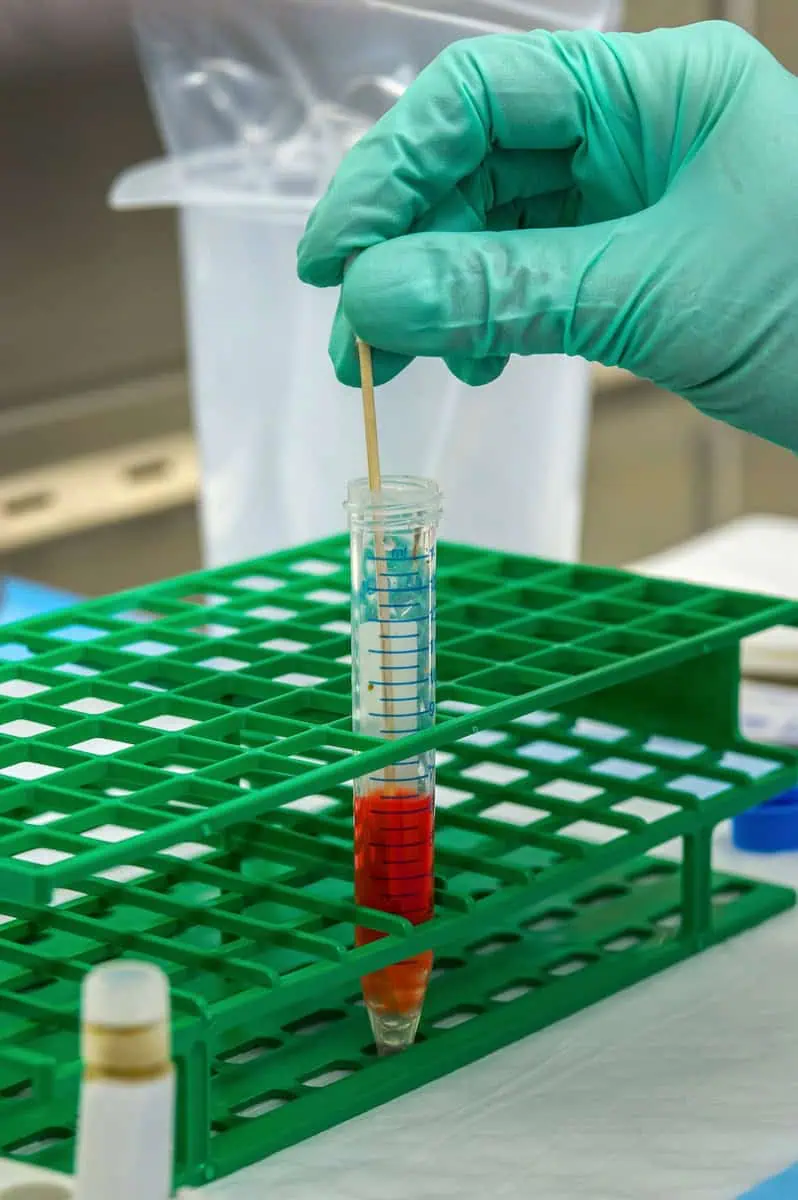Exact Answer: Up to a few days
Urine samples are collected to determine the existence of ailments like UTIs, liver disease, or kidney stones. These samples are tested in the laboratory for irregularities to ascertain the possibility of ailments afflicting the individual in question. There are several precautionary measures that the patient must observe when collecting the sample so as to ensure its sterility.
The sample container must be clearly labeled and well-sealed before it is delivered to the testing lab. The name of the patient, date of collection, and other important pieces of information must be mentioned on the label. Without proper labeling, there is a strong possibility that the sample may be misplaced and the results so obtained may be misrepresented.

How Long After Urine Sample Can Last?
Urologists and lab assistants guide patients about the correct procedure of collecting and storing the sample before it can be delivered to the lab for testing. One must stick to the guidelines stated so as to avoid contamination of the sample. It is important that the individual follow the specific guidelines given to him or her by the physician.
The kind of test that is to be conducted on the urine sample collected from the patient will determine the maximum time frame for its storage. According to lab professionals, a sample of urine can be stored at a low temperature of about 2 to 4 degrees Celsius for up to 24 hours. However, this might not be prudent when the test needs to be conducted immediately on the urine sample.
Certain forms of urine analysis focus on the examination of the bacterial culture and colony elements in the sample. In such cases, the sample needs to be delivered within an hour to the testing laboratory. Similarly, testing for WBCs or RBCs would also require an immediate assessment of the urine sample. However, tests that do not simply examine these elements, are laxer in terms of the stipulated time frame of delivery.
Other tests, like the ones used for drug analysis, do not require the sample to be immediately delivered to the lab. More than not, such samples are collected and then stored at low temperatures for a few days and then tested. The best method of ensuring the correct delivery time for the sample is to follow the regulations mentioned at the time when the test was prescribed.

In Summary:
| Kind of Assessment | Time Frame of Viability |
| Bacterial Cultures | Up to a few hours of collection |
| WBC, RBC Count | Immediately |
| Drug Testing (Refrigerated) | Up to a few days |
Why Does A Urine Sample Last So Long?
The kind of test that is slated to be conducted on the collected sample determines the longevity of the sample. In the case of bacterial cultures and colony assessments, the sample is only viable for a few hours after its collection. This is because when urine is kept out at room temperature, bacterial contamination in the sample hastens. Moreover, other elements like urea keep building in a sample that is left at room temperature.
This implies that the lab cannot effectively culture the urine because it is already contaminated. Any existing infections will no longer be identifiable when the urine is assessed. This defeats the purpose of the test. Similarly, when testing for WBCs and RBCs, the sample must be tested immediately as otherwise the cells perish and cannot be detected in the lab.
Thus, samples are refrigerated. Lower temperatures help slow down the contamination process. Regular temperatures act as accelerants in the process of contamination. They help amplify the already existent bacterial growth in the sample. In lower temperature environments, such bacterial growth is minimized. Therefore, the sample remains viable for examination.
Similarly, in the case of drug testing, the goal is to find intoxicants in the urine sample. These intoxicant levels are more or less sustained in a collected sample. This makes examination of the sample possible even after a few days. However, the catch is that the sample must be stored properly in a well-refrigerated area.
The best way to store a urine sample is to immediately deliver it to the lab. In cases when such prompt delivery is not plausible, patients are advised to immediately refrigerate the container to ensure that the sample remains testable for a longer period of time.
Conclusion
Urine sample collection and storage can be difficult for a patient. The time frames of storing the collected sample are especially tricky. It is important to know the correctly stipulated time within which the sample must be delivered to the testing lab to obtain the most accurate results.
For most cases, a urine sample can remain viable for a longer duration when stored in the refrigerator. However, certain tests like bacterial culture assessments require the sample to be delivered to the lab within a very small window of time. This is to ensure the correct analysis of the sample collected. However, other tests can be conducted on a sample that has been refrigerated for a few days without affecting the outcome of the results.
